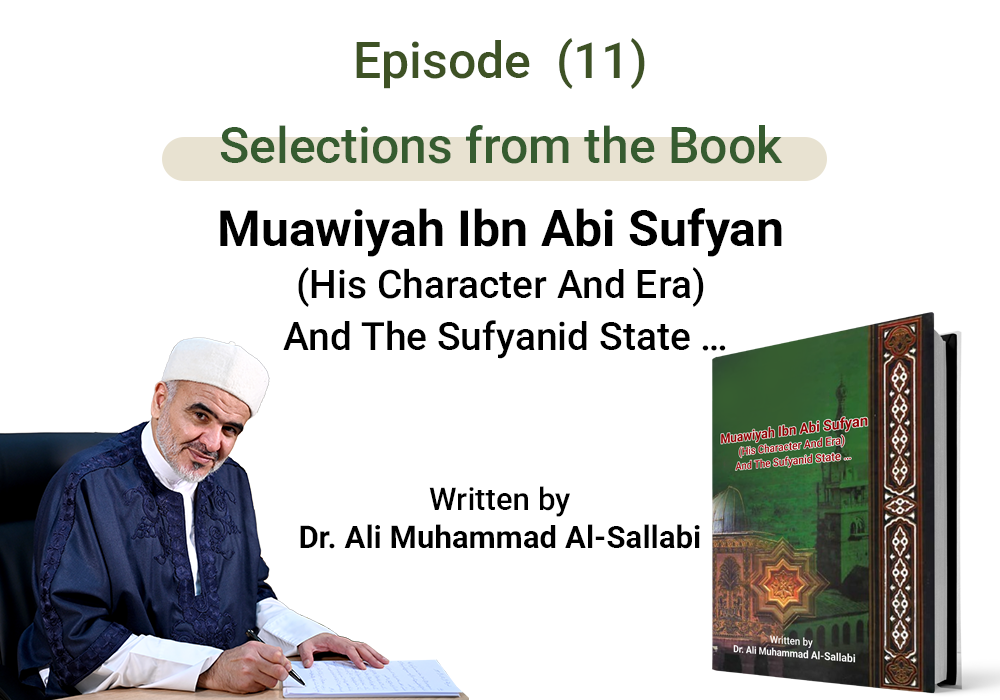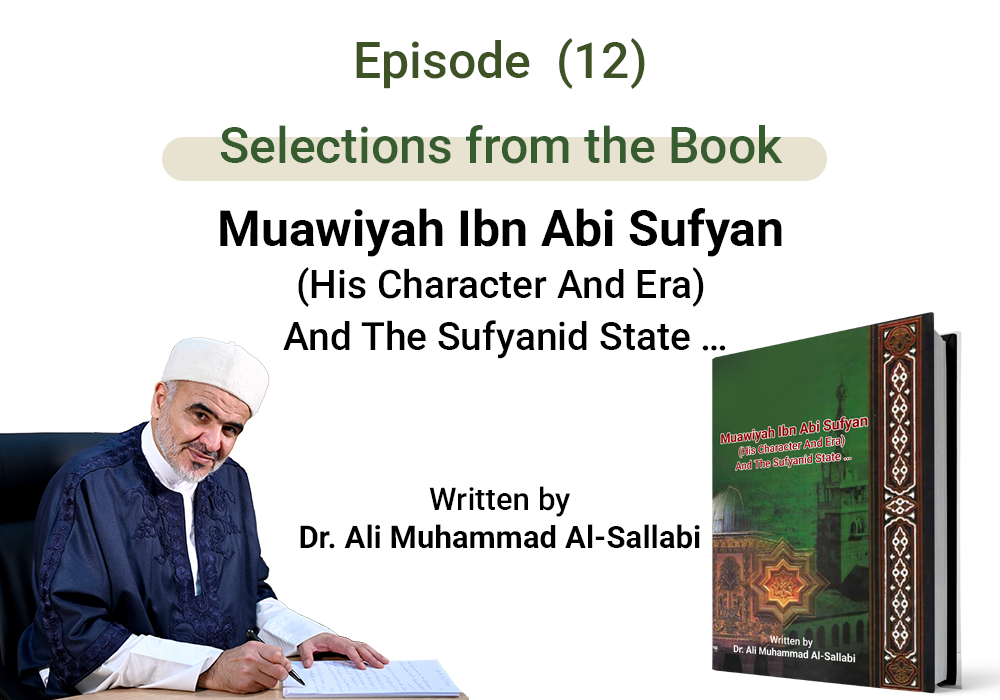The Killing Of Ammar Ibn Yasir, may Allah be pleased with him, And Its Impact On The Muslims
Selections from the Book Muawiyah Ibn Abi Sufyan (His Character And Era) And The Sufyanid State …
Written by Dr. Ali Muhammad al-Sallabi...
Episode (11)
The hadith of the Messenger of Allah (peace be upon him) to Ammar, may Allah be pleased with him: "The transgressing party shall kill you", is one of the authentic and established hadiths from the Prophet (peace be upon him). The killing of Ammar, may Allah be pleased with him, had an impact during the Battle of Siffin, as he was a symbol for the companions of the Messenger of Allah (peace be upon him) who followed him wherever he went. Khuzaima ibn Thabit was present at Siffin and had held back from fighting, but when he saw the killing of Ammar, he drew his sword and fought against the people of al-Sham, because he had heard the hadith of the Messenger of Allah (peace be upon him) about Ammar: "The transgressing party shall kill you". He continued fighting until he was killed.
The killing of Ammar also had an effect in the camp of Muawiya. Abu Abd al-Rahman al-Sulami entered the camp of the people of al-Sham and saw Muawiyah, Amr ibn al-As, his son Abd Allah ibn Amr, and Abu al-Awar al-Sulami at the water source giving water. It was the only source of water from which both sides drank. Their conversation was about the killing of Ammar ibn Yasir. Abdullah ibn Amr said to his father: “We have killed this man, and the Messenger of Allah (peace be upon him) said what he said about him”. He said: “Which man?” He replied: “Ammar ibn Yasir. The Messenger of Allah (peace be upon him) said to him: ‘The transgressing party shall kill you’”. Amr said to Muawiyah: “We have killed the man, and the Messenger of Allah (peace be upon him) said what he said about him!” Muawiyah replied: “Be quiet! By Allah, you will never cease urinating on yourself! Did we kill him?! He was killed by the one who brought him [to battle]!” Muawiyah’s interpretation spread among the people of al-Sham like wildfire.
In an authentic narration, it is reported that Amr ibn Hazm entered upon Amr ibn al-Aas and said: “Ammar has been killed, and the Messenger of Allah (peace be upon him) said about him: ‘He will be killed by the transgressing party’”. Amr ibn al-Aas stood up in fear, seeking revenge until he entered upon Muawiyah. Muawiyah said to him: “What’s the matter with you?” He said: “Ammar has been killed”. Muawiyah said: “Ammar has been killed, so what?” Amr said: “I heard the Messenger of Allah (peace be upon him) say to him: ‘The transgressing party shall kill you’”. Muawiyah replied: “Woe to you! Did we kill him?! He was killed by Ali and his companions; they brought him and threw him between our spears”, or he said, “between our swords.”
In another authentic narration, two men came to Muawiyah disputing over the head of Ammar, each one saying: “I killed him”. Abdullah ibn Amr ibn al-Aas said: “Let one of you give it up willingly to the other, for I heard the Messenger of Allah (peace be upon him) say: ‘He will be killed by the transgressing party’’”. Muawiyah said: “Then why are you with us?” He said: “My father complained about me to the Messenger of Allah (peace be upon him), so he said: ‘Obey your father as long as he is alive, and do not disobey him’. So I am with you, but I am not fighting.”
From the previous narrations, we observe that the companion and jurist Abdullah ibn Amr, may Allah be pleased with them both, was keen on speaking the truth and giving advice. He saw that Muawiyah and his army were the rebellious group for having killed Ammar, as he repeated this objection on various occasions. There is no doubt that the killing of Ammar, may Allah be pleased with him, had an impact on the people of al-Sham due to this hadith. However, Muawiya, may Allah be pleased with him, interpreted the hadith with an unsound and unacceptable interpretation, claiming that those who killed Ammar were the ones who brought him to battle.
The killing of Ammar also had an impact on Amr ibn al-Aas. In fact, Ammar’s martyrdom became a motivation for Amr ibn al-Aas to seek an end to the war. He, may Allah be pleased with him, said: “I wish I had died twenty years before this day.”
It is narrated in al-Bukhari from Abu Sa'id al-Khudri, may Allah be pleased with him, who said: “We were carrying one brick at a time, and Ammar was carrying two bricks at a time. The Prophet (peace be upon him) saw him, wiped the dust off him, and said: ‘May Allah be merciful to `Ammar, the transgressing party will kill him. Ammar will invite them to (obey) Allah and they will invite him to the (Hell) fire’. Ammar said: ‘I seek refuge with Allah from tribulations.’”
Ibn Abd al-Barr said: Reports have come in succession from the Prophet (peace be upon him) that he said: “The transgressing party will kill Ammar”, and this is part of his foretelling of the unseen and a sign of his prophethood (peace be upon him). It is among the most authentic hadiths. Al-Dhahabi said after mentioning the hadith: “There are reports from several companions on this matter, so it is a mutawatir hadith.”
- Ali Muhammad al-Sallabi, Muawiyah Ibn Abi Sufyan (His Character And Era) And The Sufyanid State, pp. 245-248.
- The Caliphate of Ali, p. 211.
- Biographies of the Noble Figures (1/421).
- Comprehension (3/1140).
- Al-Bukhari, No. (447).
- Genealogies of the Nobles (1/170); Amr ibn al-`Aas, by al-Ghadhban, p. 603.
- Muawiyah ibn Abi Sufyan, Al-Ghadib, p. 215.
- Musnad Ahmad (2/206).
- Muslim, No. (2916).
For further information and review of the sources for the article, see:
The Book of “Muawiyah Ibn Abi Sufyan (His Character And Era) And The Sufyanid State” on the official website of Sheikh Dr. Ali Muhammad al-Sallabi:






